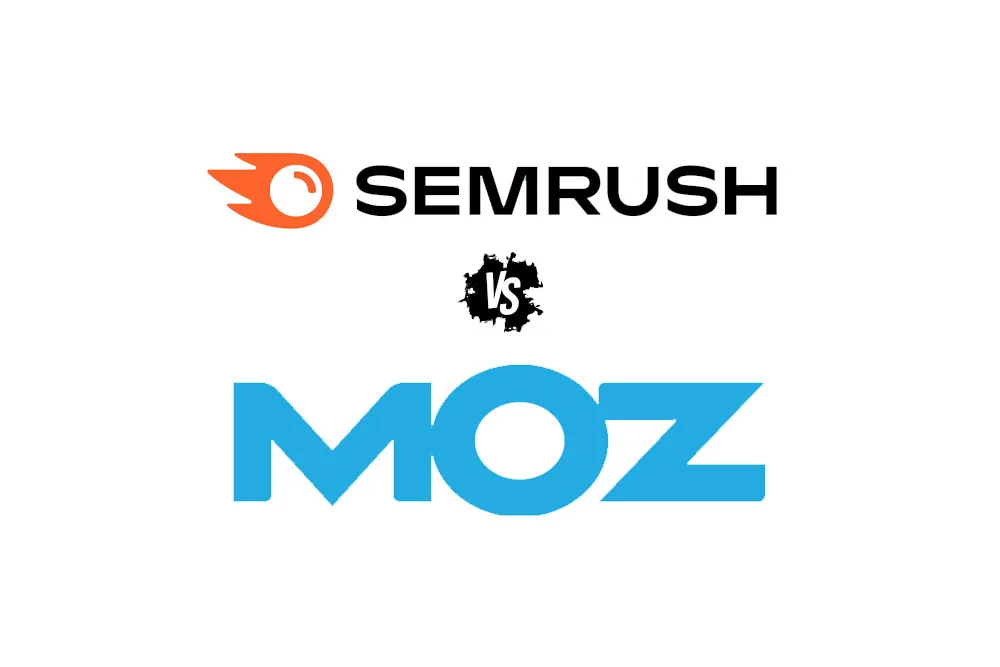What Is Better, Semrush or Moz? A Comprehensive Comparison
In the ever-evolving world of digital marketing, choosing the right SEO tool can be a game-changer for your business. Two of the most prominent names in the SEO industry are Semrush and Moz. Both tools offer a wealth of features designed to help you improve your search engine rankings, but which one is better for your specific needs? In this blog post, we’ll dive deep into the strengths and weaknesses of both Semrush and Moz to help you make an informed decision.
Introduction to Semrush and Moz
Before we get into the nitty-gritty of which tool is better, let’s start with a brief overview of what Semrush and Moz are.
Semrush is an all-in-one digital marketing tool that offers a comprehensive suite of features, including keyword research, competitor analysis, site audits, backlink analysis, and more. It’s widely regarded for its vast database and user-friendly interface, making it a go-to tool for many digital marketers.
Moz, on the other hand, is a well-known SEO tool that has been around for years. It’s particularly praised for its accurate domain authority (DA) metrics, on-page optimization tools, and link-building features. Moz is often considered a more specialized tool focused primarily on SEO.
Now that we have a basic understanding of both tools, let’s delve into a detailed comparison.

Feature Comparison: Semrush vs. Moz
1. Keyword Research
Keyword research is a fundamental aspect of SEO, and both Semrush and Moz offer robust tools to help you find the right keywords.
- Semrush: Semrush’s Keyword Magic Tool is one of the best in the industry. It provides an extensive database of keywords, complete with metrics like search volume, keyword difficulty, CPC (Cost Per Click), and SERP features. Additionally, Semrush allows users to discover keyword variations, questions, and related keywords, making it an excellent tool for uncovering niche opportunities.
- Moz: Moz’s Keyword Explorer is also a strong contender in this category. It offers similar metrics, including search volume, difficulty, and potential, but it stands out with its Priority Score feature. This score combines all metrics into a single number, making it easier for users to identify the best keyword opportunities.
Winner: Semrush, due to its more extensive keyword database and additional features like SERP analysis.
2. Backlink Analysis
Backlinks are a critical factor in SEO, and both Semrush and Moz provide tools for analyzing your backlink profile.
- Semrush: Semrush offers a powerful Backlink Analytics tool that allows users to analyze their own backlinks as well as those of competitors. It provides detailed reports on referring domains, anchor texts, and new or lost backlinks. Semrush also includes a Backlink Gap tool that helps you identify potential link-building opportunities by comparing your backlinks with those of your competitors.
- Moz: Moz’s Link Explorer is known for its accuracy in tracking backlinks. It provides detailed insights into your backlink profile, including metrics like DA (Domain Authority), PA (Page Authority), and spam score. Moz also offers a Link Intersect tool that allows users to discover sites that link to their competitors but not to them, which can be useful for outreach.
Winner: Semrush, due to its comprehensive backlink analytics and additional tools like the Backlink Gap.
3. Site Audits
Regular site audits are crucial for identifying and fixing technical SEO issues that could harm your search engine rankings.
- Semrush: Semrush’s Site Audit tool is one of its standout features. It scans your website for over 130 different technical and SEO issues, including broken links, duplicate content, and slow-loading pages. The tool also provides actionable insights and recommendations to help you improve your site’s health.
- Moz: Moz’s Site Crawl tool is also effective at identifying technical SEO issues. It provides detailed reports on issues such as crawlability, content, and link errors. However, Moz’s site audit features are generally considered less comprehensive than those of Semrush.
Winner: Semrush, for its more detailed and actionable site audit capabilities.
4. On-Page Optimization
On-page optimization is essential for ensuring that your content is aligned with search engine algorithms.
- Semrush: Semrush’s On-Page SEO Checker provides users with a detailed analysis of their content and suggests improvements based on the top-ranking pages for their target keywords. It also offers recommendations for improving meta tags, content length, and keyword usage.
- Moz: Moz’s On-Page Grader is a similar tool that evaluates your page’s SEO based on your target keyword. It provides recommendations for optimizing meta tags, content, and other on-page elements. However, it lacks some of the advanced features found in Semrush’s tool.
Winner: Semrush, for its more comprehensive and advanced on-page optimization features.
5. Competitor Analysis
Understanding your competitors’ strategies can give you a significant advantage in SEO.
- Semrush: Semrush excels in competitor analysis. Its tools allow users to analyze competitors’ keywords, backlinks, traffic, and ad strategies. The Competitive Positioning Map is particularly useful for visualizing where you stand relative to your competitors.
- Moz: Moz offers basic competitor analysis features, such as the ability to compare domain authority and backlink profiles. However, it doesn’t offer the same depth of insights as Semrush.
Winner: Semrush, due to its extensive competitor analysis features.
Pricing Comparison
Both Semrush and Moz offer tiered pricing plans, but they differ in what’s included at each level.
- Semrush: Semrush’s pricing starts at $119.95 per month for the Pro plan, which includes most of its core features. The Guru plan, at $229.95 per month, adds features like content marketing tools and historical data. The Business plan, at $449.95 per month, is designed for large agencies and enterprises.
- Moz: Moz’s pricing starts at $99 per month for the Standard plan, which includes basic SEO tools. The Medium plan, at $179 per month, adds features like branded reports and more in-depth site audits. The Large plan, at $299 per month, is suitable for larger businesses with advanced needs.
Winner: Moz, for its more affordable entry-level plans, though Semrush offers more comprehensive features at higher price points.
Ease of Use
Both Semrush and Moz are user-friendly, but there are some differences in their interfaces.
- Semrush: Semrush has a clean, intuitive interface that’s easy to navigate. Its tools are organized into categories, making it simple to find what you need. The platform is designed for users of all experience levels, from beginners to advanced marketers.
- Moz: Moz’s interface is also user-friendly, with a straightforward design that’s easy to navigate. However, some users find it less intuitive than Semrush, especially when accessing more advanced features.
Winner: Semrush, for its slightly more intuitive interface and better organization.
Discover the Best SEO Tool for Your Business
Compare Semrush and Moz to find the perfect SEO tool for your needs. Start optimizing your website and improving your search rankings today!
Conclusion: What Is Better, Semrush or Moz?
When it comes to deciding between Semrush and Moz, the choice largely depends on your specific needs and budget. If you’re looking for a comprehensive digital marketing tool with advanced features for SEO, PPC, and content marketing, Semrush is the better option. However, if you’re primarily focused on SEO and want a more affordable solution, Moz might be the right choice for you.
Ultimately, both tools have their strengths and can be valuable assets in your digital marketing arsenal. By considering the features, pricing, and ease of use, you can determine which tool aligns best with your goals.


